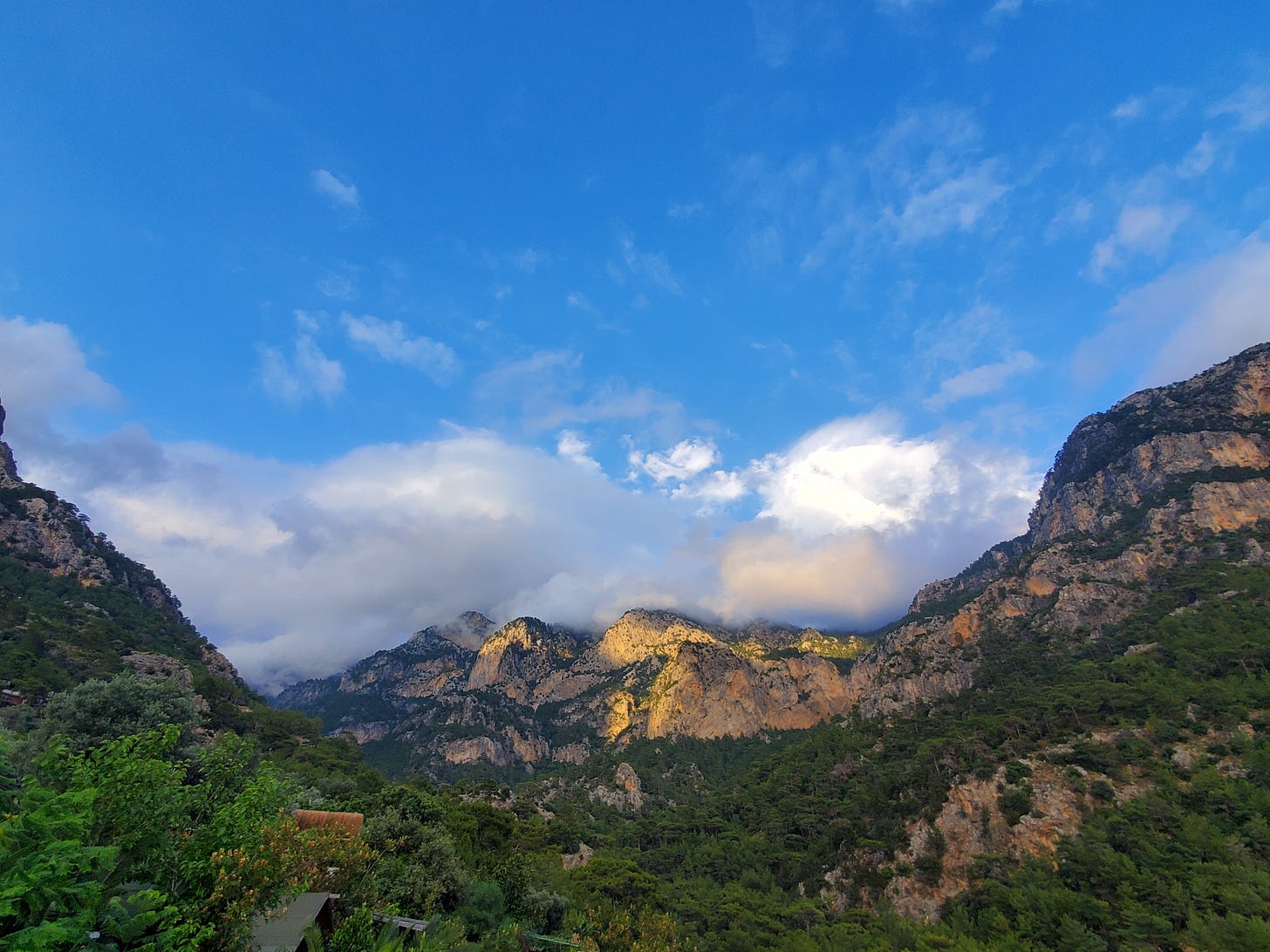Burak was working the bar in a small hotel overlooking the Aegean on the south coast of Türkiye. He said he wanted to see more of the world, although by many standards he already had. He'd studied engineering, been to the US but didn't much like it. Been to Canada and found the welcome of immigrants warmer than the US, but opportunities for promotion harder. Management positions were apparently for Canadians. And so he was back in Türkiye, working to save and then travel again. He remarked, truthfully enough, that my UK passport gave me an advantage in experiencing more of the world, which was his goal, if not really the way I see my own.
I said it was great that he'd lived in North America a while, discovered more of what it's like, discovered it was in many ways not for him, and certainly not the promised land that for many who never go there North America remains cracked up to be. A place you can't get to will always hold more appeal, I said. And equally, by the same token, if you don't get to leave a place then it follows that all the world's problems will flow by extension from it, and be defined by the place in which you experience those problems.
I write this as some hundred people, making the dangerous Mediterranean journey from Libya towards Greece, die when their overloaded boat sinks. It is privilege to begin with to discuss something so cruel and murderous as borders in such an abstract way. From only the perspective of how they dictate the way we see the world, rather than our chances of survival in it.
Nonetheless there is some overlap, and more than that I feel it contributes something to the weakening of the actual murderous borders to try and illuminate a little of how they shape thought either side of them.
I mentioned in passing to Burak my travelling by bicycle through Türkiye last year. I said roughly my route: east from Thessaloniki to Istanbul, the west and south Turkish coasts, towards Gaziantep, Diyarbakır, Kars. He brightened and smiled at my mention of these latter cities, said that it was nice to hear of someone going there from outside of Türkiye.
Borders as much as anything, probably more than anything, enforce an idea of places that are worth being in and those not worth being in. Because this understanding of ‘worth’ is defined almost entirely by the cheap logic of capital, it is often so that those places that borders deem worthy of being in are hardly worth much at all, while those places that borders do not need to defend so ruthlessly are actually much more worthy of our time and thought.
This is a mostly material assessment of the role of borders in policing people and protecting capital, but there are emotional and intellectual ramifications that are just as crucial — not least of all because these ramifications then end up as factors in the material calculation also. Put simply, it becomes easier to speak for the world if you have access to all of it, while if you do not have access to all the world then this becomes a limiting factor of sorts, and it runs the risk of being internalised as one's own limitation, even where it is no such thing.
This is not a novel or profound observation, nor one that is limited to perspectives of the world. The idea of Westerners narrating the world because they have access to it, while other nationalities are left only to narrate their own experience (as if this were not also The World, or not fundamentally all that Westerners are doing anyway, only with greater geographical access), is a relative to other recognisable traits such as men being great writers, artists, etc. while women have often been left to be great female writers, artists, etc. Those who belong to ethnic minorities face a similar challenge, where their experience is assumed to be their own rather than the world's.
In some respects these sort of generalisations are changing. People become more likely to recognise the absurd restriction of these paradigms than expect others to conform to them.
How Westerners respond to their near-total geographical privilege in this respect seems helpful to consider. Self-awareness might be more useful than guilt, though that isn't to rule out the value of both. A sense that, much like gluttony, from the availability of abundance there can also come an absence of nourishment. The uppers of a global access can seem like a fullness of experience, but that reality can equally mask a way of life that has in it far less perspective, and less understanding, of the world it thinks it knows.




